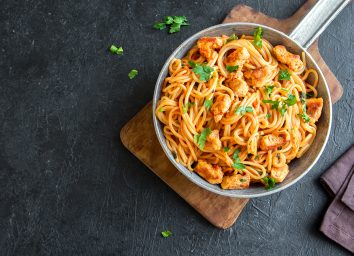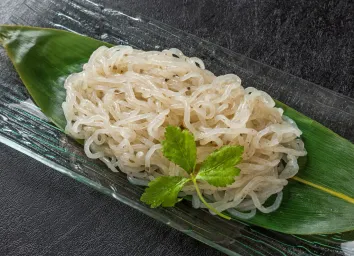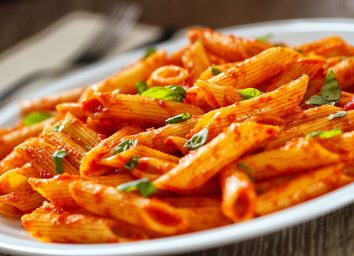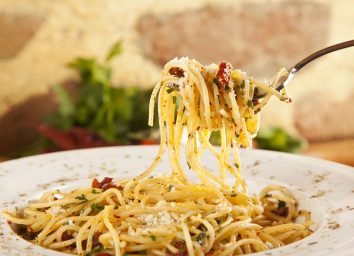The Best-Ever Way to Keep Your Pasta from Sticking Together
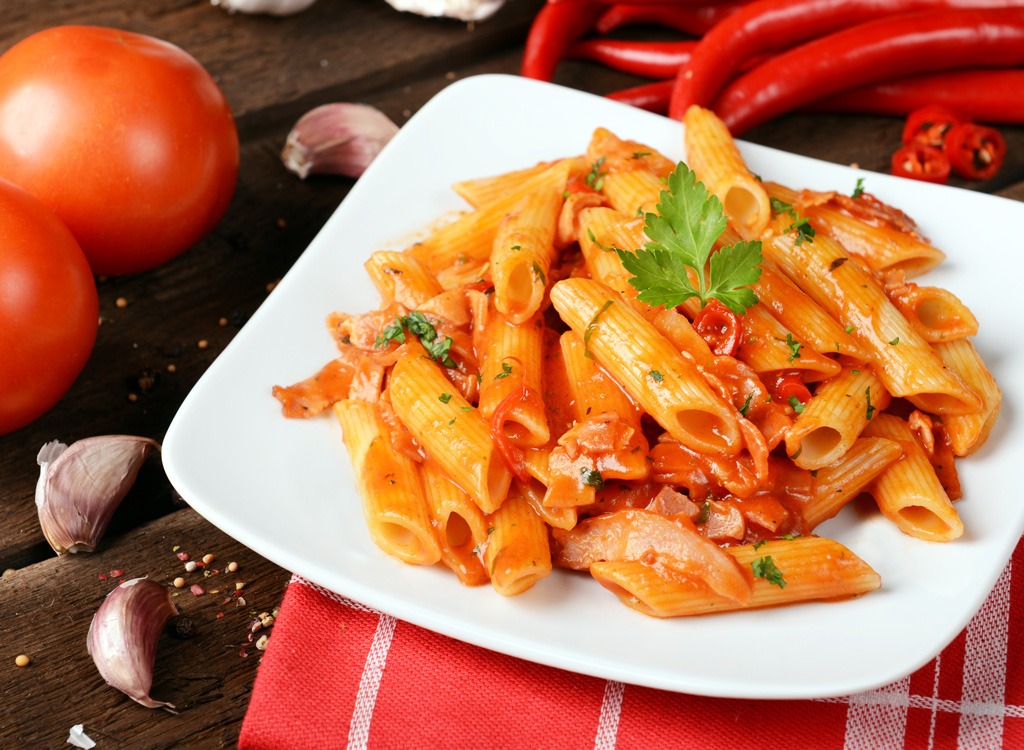
There are lots of tricks for making pasta. But many theories about how to keep pasta from sticking are the culinary equivalent of old wives' tales. In other words, doing things like adding oil to your pasta water is a lot like trying to feed a fever or starve a cold: It might make you feel like you're doing something, but the outcome is going to be the same.
So what is the one thing you should really be doing to keep your pasta from sticking together? Stir it. Frequently.
"Pasta should be stirred often while cooking—especially in the first few minutes of cooking," says Ethan McKee, executive chef at Urbana in Washington, D.C. Agitating it keeps them from settling in one spot and sticking.
And if you're using fresh noodles, rather than dry ones, there's an extra step you should take.
"If you are going the fresh pasta route, then drying out the sheets for 20 minutes before you cut them helps a lot, as does an extra dusting of semolina flour in order to prevent sticking as the noodles release moisture," says chef Matt Sigler of Il Solito in Portland. "If you are using dry noodles, stirring the noodles after you drop them in boiling water is the best bet to reduce clumping."
Here are all of the pasta-sticking tricks that chefs swear by—and one pasta mistake that you should skip.
Stir the pasta water.
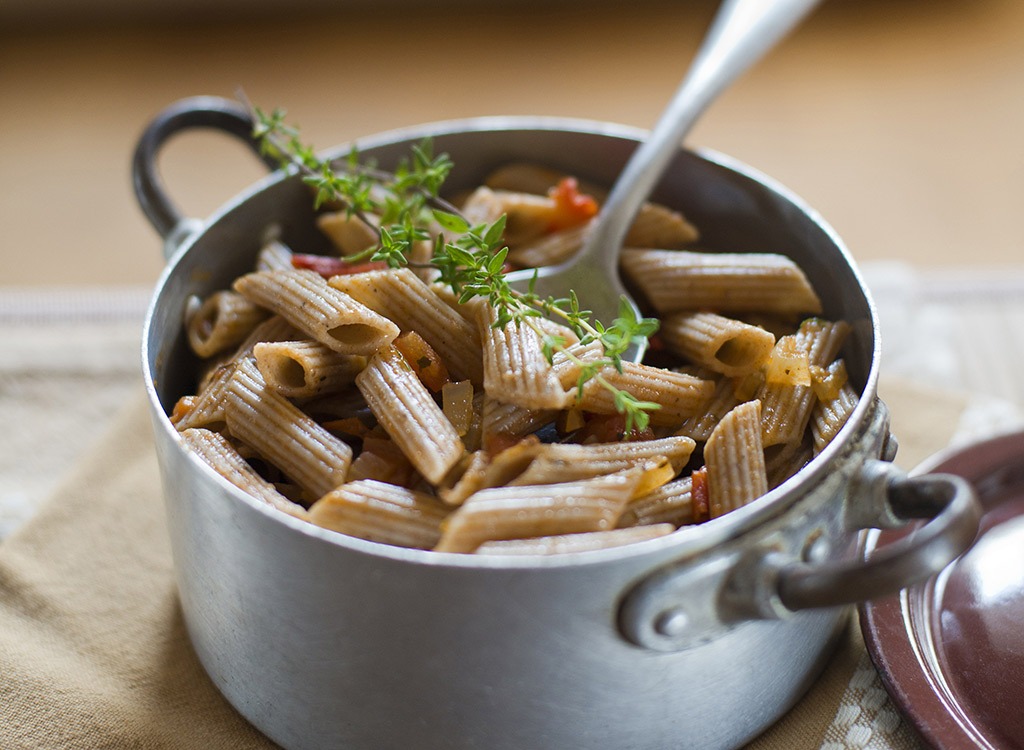
Stirring is really your best bet, though you don't have to constantly tend to the pot for it to work. Just make sure you give it a few good stirs at the beginning, middle, and end of cooking. McKee also offers a tip for making stirring a little easier—it's all in the temperature of the water.
"When cooking at home, I will add the pasta to rapidly boiling water and then turn the heat down slightly to a simmer," the chef says. "This way, it's easier to stir without burning yourself from the steam and the water doesn't foam up."
Add salt to the pasta water.
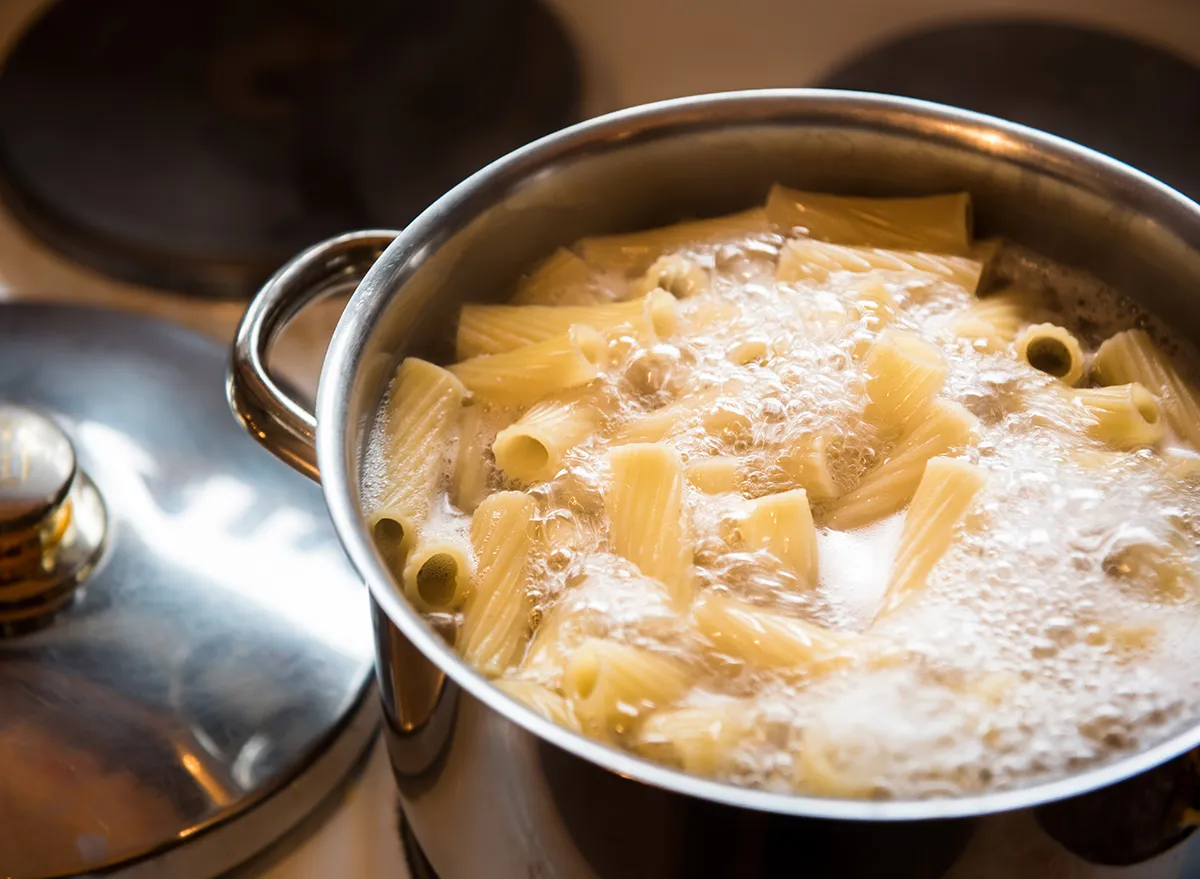
Our chef sources agreed that this is an easy step you shouldn't skip, although it probably won't keep the noodles from sticking together.
"Salting the water does not keep the noodles from sticking, but it will give your pasta more flavor," says executive chef Luca Corazzina of 312 Chicago.
Chef Matt Sigler of Il Solito in Portland, offers a similar viewpoint. "It doesn't keep the noodles from sticking, but it is important to introduce this salt to the noodle for flavor," Sigler says. "Always salt the water."
Salt doesn't prevent sticking, and, contrary to myth, it won't actually help your water boil faster. But what it does do is add flavor, so you should still include this step in your pasta routine.
Executive Chef Walter Pisano of Tulio in Seattle recommends waiting until the water is boiling before adding the salt. But if you do add the salt in before the water is boiling, it probably won't make a huge difference.
"Adding salt before the water is boiling does bring the boiling point down, but it takes a lot of salt to make a difference in the boiling point," says executive chef Dan Matthiesen of Bookstore Bar & Café in Seattle. "So adding it before or after boiling it has the same result."
Make sure you're using enough water.
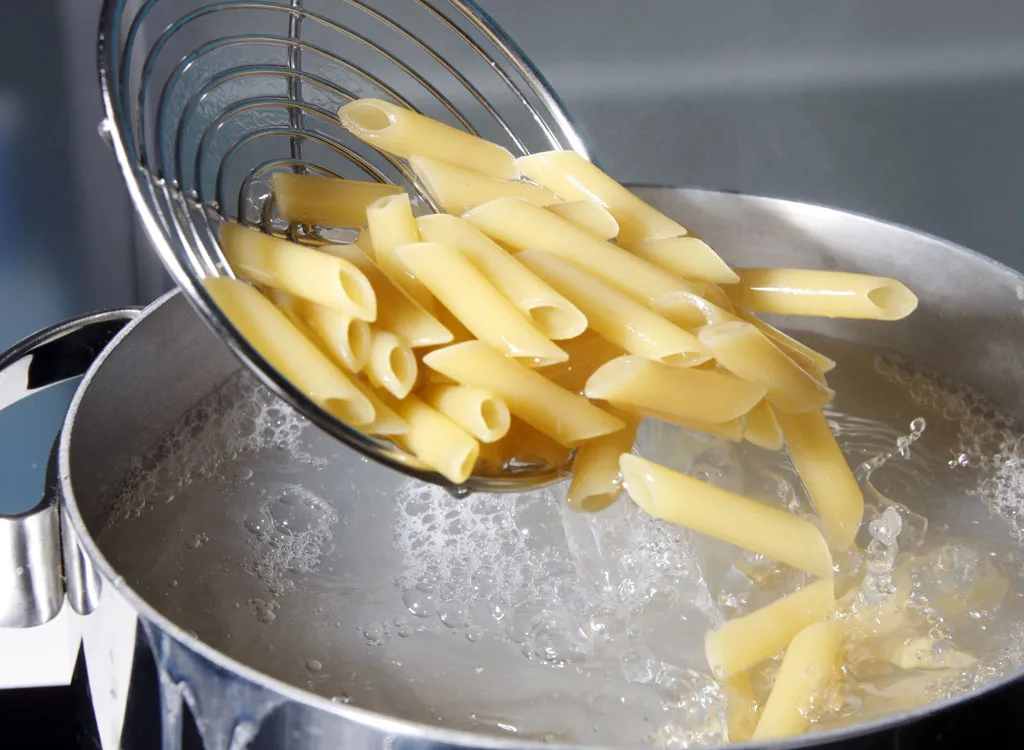
There is one thing you may also consider if your pasta is still sticking even after frequent stirring: whether or not you're using enough water. The reason pasta sticks in the first place is because it's leaching starches into the water as it cooks.
If you have enough water, the concentration will be low enough that your pasta is at a low risk of sticking. The ratio is usually 4 quarts water to 1 pound dried pasta. If you are cooking with a smaller pot and using less water, just stir more frequently.
Don't add oil to pasta water.
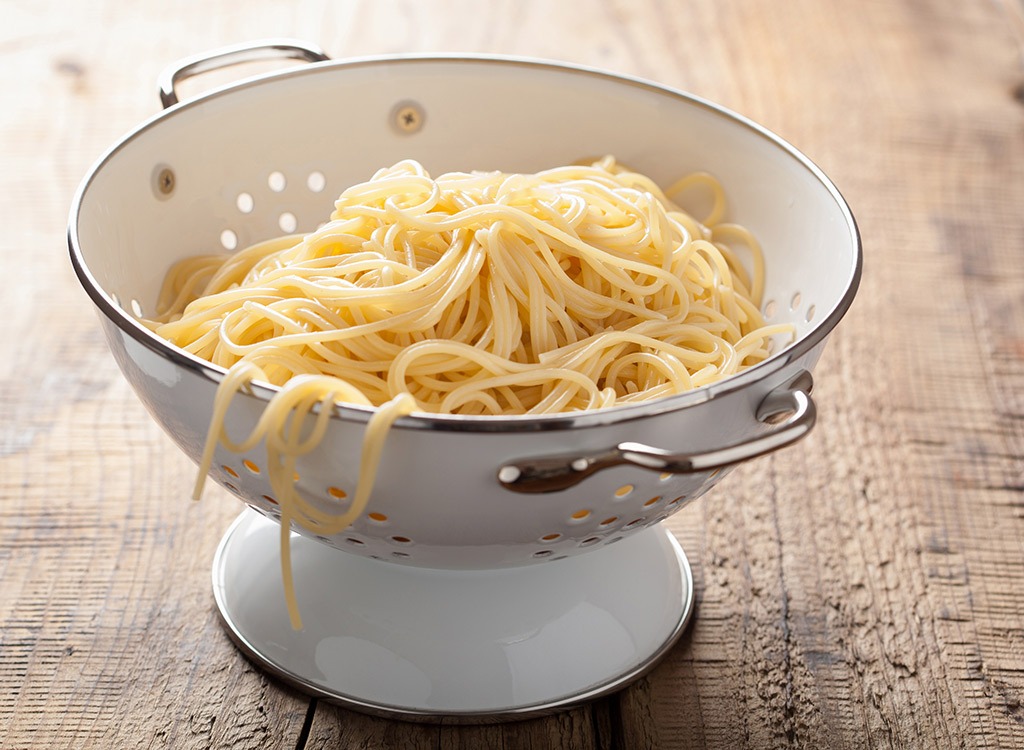
Not only will this not keep pasta from sticking together, but it will also make your sauce less effective.
"Adding olive oil to boiling water with pasta is not a good use of oil," says McKee. Instead, it will only coat the noodles in oil as you drain them, which prevents the sauce from adhering later.
And if you're not tossing your noodles in the sauce right away, or you plan to reheat your pasta later, adding olive oil after you take them out of the pot can help prevent sticking. "After you take the noodles out of the water, coating with some olive oil is an effective measure to prevent sticking," Sigler says. Pisano also suggests tossing the cooked noodles in butter for a richer flavor.
Now that you know these tricks about how to keep pasta from sticking, you'll never end up with a sad bowl of noodles again.
